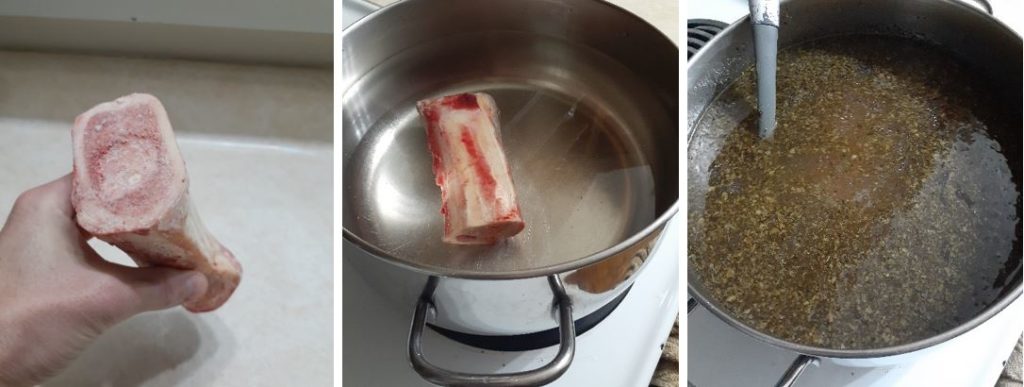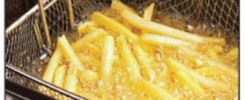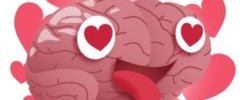Throughout human evolution periods of feasting have been followed by periods of fasting. Our body is physiologically adapted to spending a little time without food. Skip eating for a day or so, 24-36 hours, and just consume water, tea, or bone broth and feel the health benefits. I suggest fasting from about 6pm after you have had dinner until 6pm the next day and then have a small dinner, or if you feel good, go until breakfast time the next day. During the fast you can consume as much non-sugar liquids as you want. I want to point out that a 24-36 hour fast is completely safe and will not cause your body to go into “starvation mode”; metabolism won’t start slowing down until after about 72 hours. I do not suggest doing a fast if you are pregnant or diabetic.
What are the benefits of a 24-36 hour fast?
- Your body burns stored fat – this will help you lose the weight you may have gained over the holiday feasting period. When immediate calories are not available from food, the body is forced to produce many hormones that cause the fat cells to break down stored energy to maintain your blood sugar. If your body is not used to periodic fasting then your brain may not like this and you could start to feel hungry. Your stomach cells will produce the hunger hormone called ghrelin but this only lasts for about 10 minutes and then it will go away so don’t worry about this feeling, just let your body figure out that it needs to make other hormones to keep your blood sugar stable.
- Your pancreas will produce glucagon – this is a hormone that signals the liver to breakdown glycogen and fat to stabilize blood sugar.
- Your brain and adrenal glands will start to produce epinephrine and norepinephrine – these hormones are made about 8-10 hours into a fast and they signal fat cells to breakdown fat. They are also stimulating, so they will make you feel energetic. This works out well for morning energy if you start your fast the evening before.
- Your adrenal glands will produce cortisol – I know I have talked about how excess cortisol can be quite detrimental but this short term burst of cortisol during a fast is necessary for the body to keep blood sugar regulated. Cortisol is naturally produced in the morning and signals fat cells to break down fat to keep blood sugar stable and it also helps to reduce your appetite.
- Your pituitary gland will produce growth hormone (GH) – in adults, this hormone is only produced during deep sleep, intense exercise or periods of fasting. GH is our anti-aging hormone that signals cells to regenerate. We can’t regenerate cells when we eat all the time because the body can only fully divert energy to digesting and storing nutrients or cell repair and regeneration.
- Mitochondria will replicate – mitochondria are organelles in the cells that produce energy and also play a role in many other important functions such as apoptosis (killing damaged cells), protective and anti-aging effects. Short term stresses like exercise and fasting stimulate cells to make more mitochondria, increased mitochondrial numbers are directly proportional to cellular health.
- Reduces leptin resistance – leptin is a hormone that is produced by fat cells and tells our brain that we are full and satiated. When we eat all the time without periods of fasting, we can become leptin resistant and that means we will feel hungry even of we have eaten enough nutrients. Controlling hunger is key for regulating body weight and metabolism.
- Reduces insulin resistance – Insulin is the only hormone that tells our cells to take up blood sugar and convert it to fat for storage. The purpose of this is to have enough stored energy so we can survive during the periods of time when there is less food. IF we eat all the time then insulin is produced all the time and cells eventually stop responding to it. Insulin resistance will eventually cause type 2 diabetes. When we fast, insulin is not produced; we need to have periods of time when we do not produce insulin, then the cells will then be more sensitive to insulin the next time you eat.
- Fasting increases lifespan – it is well established that there is a fundamental connection between caloric intake and aging. Fasting triggers the expression of sirtuins that play a major role in cell longevity, regulating the insulin response, and production of cellular antioxidants. Sirtuins may play a significant role in prevention of cancer cell development because they reduce cell growth and promote cell repair, increase resistance to oxidative stress and regulate gene expression. Sirtuins are inhibited in a nutrient-rich environment. Sirtuins can only function in the presence of NAD+ (a molecule used to make NADH that is used by the mitochondria to make energy), and the only way to increase cellular levels of NAD+, other than taking it as a supplement, is to fast. Studies indicate that at least 14 hours of fasting is required to affect cellular functions.
- Promotes healing of the intestinal lining – Giving the intestines a 24-hour break from digesting food gives the tiny layer of epithelial cells a chance to repair and replace damaged cells. Having an intact intestinal epithelial barrier is essential for preventing undigested molecules like proteins or carbs from entering the bloodstream and causing inflammation. Consuming bone broth during your fast significantly increases the healing of the intestinal cells because bone broth contains a high amount of glycine that is directly used by epithelial cells for repair and regeneration.
- Activates stress-resistant pathways – Fasting is interpreted by the body as an acute stress. Acute stress is beneficial because it causes a cascade of hormonal and metabolic changes that increases the body’s ability to deal with stress. It is like exercise causing muscle damage that makes the muscle repair and become stronger. Short duration stresses like fasting, cold/heat exposure, or high intensity exercise make the body better able to deal with a wide range of stresses.
- Reduces inflammation – fasting significantly reduces markers of inflammation and therefore, may play a role in reducing heart disease, autoimmune diseases, neurodegeneration, and other chronic diseases.
How to make bone broth
- Put a bone or bones from a leftover turkey, chicken, beef etc. into a pot of boiling water.
- Add 2 tablespoons of vinegar, the acid helps to release minerals from the bones.
- Add salt and whatever spices you want to make it taste good, maybe throw in some chopped onion, celery and/or carrots, and then simmer for 16-24 hours.
That’s it. Use a strainer to pour into a cup and drink as much as you want during your fast.
Plan ahead – The only preparation you have to do is start simmering your bone broth the day before you want to do your fast, and make sure you have bones and any herbs or veggies you want to add to it.

What if you get hungry during your fast?
- Distract yourself – keep busy or hang out with people it will occupy your brain so that you aren’t just sitting around thinking about food
- Do some easy exercise – go for a walk or short jog, do an aerobics, spin, or yoga class, play a sport, walk your dog. When you exercise, you force your body to make hormones that increase fat breakdown and increase blood sugar, which will decrease hunger. High intensity exercise may make you hungrier so keep it moderate on your fasting day.
- Drink bone broth – you will get some nutrients, fat, amino acids, and minerals from the broth that will help your brain relax and reduce ghrelin production
- Drink caffeinated tea or coffee – stimulants suppress hunger, don’t use sugar, that will break your fast
- Make sure all the Christmas treats are gone – give them away, throw them away, or hide them in the freezer. It is way easier to fast if there are no tempting snacks in the house.
- Don’t do things you normally associate with eating – if you normally snack when you watch TV then don’t watch TV. Our brains love habits, so on your fasting day, avoid any food-related habits.
- Brush your teeth – I don’t know about you but I never eat right after brushing my teeth, so doing this activity may trick your brain into thinking it is a time of day when you don’t normally eat.
- Don’t look at pictures of food – We have a gustatory reflex that will trigger hunger and digestion simply from looking at pictures of food. Social media can be loaded with pictures of delicious things; if you follow a lot of food-related posts then avoid that for the day.
- Challenge someone to fast with you – fasting with someone else will increase motivation, make you accountable and less likely to cheat, and you can do distracting activities together that don’t involve eating.
- Don’t stress about feeling hungry – humans don’t die from not eating for one day, it is just uncomfortable. Try to just see it as a feeling and know that it is only for a short time. The hunger feelings are just your brain’s way of trying to protect you; it will figure out how to bring your blood sugar back to normal quite quickly. Reread the list of benefits and think about all the good things going on in your body. It is worth it!
Fun fact – In primitive cultures, people fasted before war, before a coming of age ritual, to make angry gods happy, or to avoid natural disasters.


Hey Wendi – you told me about this many years ago and I still practice it especially after big meals like Christmas dinner. Thanks for all you great advice. Keep it coming!!
That is awesome! I think intermittent fasting is one of the healthiest things we can do!! New research in the area continues to show even more reasons to do it on a regular basis 😀
Hi Wendi,
I didn’t realize how easy it will be to do this Intermittent fasting and the benefits far out way any discomfort I may get into. Thank you for continuing to post these really interesting subjects.
Gill
Hi Wendi. We started making bone broth as soon as we read your latest post. The broth has been simmering all night and smells yum, looking forward to the fasting…… Rhonda P.